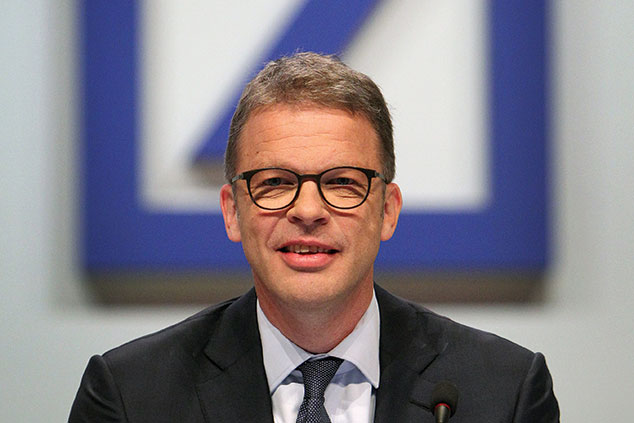
Deutsche Bank is “throwing in the towel on its ambitions to go toe-to-toe with the big Wall Street firms” in investment banking, says Anjuli Davies in The Daily Telegraph. Germany’s biggest lender has announced a restructuring plan that will involve shutting its equities division and axing 18,000 staff. A decade ago, Deutsche seemed to have beaten the big Wall Street banks at their own game, says Nils Pratley in The Guardian, but now it is a “national embarrassment” worth less than a quarter of Spanish rival Santander.
So what’s gone wrong? Deutsche is just one of many European banks to have failed on the other side of the Atlantic. “The numbers just don’t add up” for them, says Davies; making it big in America is “never going to happen”. Even the Wall Street giants are facing “an existential crisis” as their industry changes beyond recognition, with margins “razor thin” following a regulatory clampdown and new restrictions on leverage.
Deutsche’s chairman Paul Achleitner says the restructuring plan was “the right response to the major changes and challenges in the financial industry”. But that’s “clutching at straws”, says Pratley. Nobody’s making much money trading equities, but “the reality is that the storm happened a decade ago”, and Deutsche has been too slow in reacting to the global financial crisis.
A decade wasted
It is “only now setting up an internal ‘bad bank’ to sell €74bn of unwanted financial assets”, says Pratley. Deutsche may have avoided a huge state bailout, but it “seems to have wasted an entire decade avoiding serious restructuring”. It may be too late now. “At a moment when… even RBS and Barclays [say] their years of restructuring [are] over, Deutsche is only now talking the language of radicalism.” It will take a decade to repair a bank this “broken”. The restructuring is “as sensible as it is overdue”, says Stephen Wilmot in The Wall Street Journal, but it will “require flawless execution and may not go far enough”. For instance, chief executive Christian Sewing may be getting out of equities trading, but he is hanging on to the US leveraged-finance division, which is “making good returns” but is “at risk of overheating and has little to do with the new strategy”. Deutsche should ditch it.
If Sewing’s plan works, it will be “a step in the right direction”, says a Bloomberg editorial. And it is “more promising” than the previous plan – the failed merger with Commerzbank. The plan improves systemic safety, but aiming for a leverage ratio of 5% “would still fall far short of what would be needed to weather a severe crisis”. This is where the European authorities need to raise their game. In their eagerness to “build… national champions” they have often “indulged the kind of overreach” Deutsche was guilty of. Regulators “need to be less forgiving and more impatient, so that Europe’s financial system is better prepared for the next crash”.
Britain’s ten most-hated shares
These are the UK’s ten most unpopular firms, based on the percentage of stock being shorted (the “short interest”). Short-sellers aim to profit from falling prices, so it helps to see what they’re betting against. The list can also highlight stocks that may bounce on unexpected good news when short-sellers are forced out of their positions. Troubled travel group Thomas Cook has reached the top ten after Lufthansa said it was not interested in buying its German airline Condor. Kier Group issued a profit warning in June. Investors have also grown more pessimistic about Greencore and IQE: both are back in the top ten.